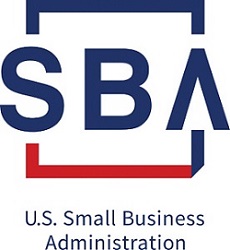PROVIDENCE – Rhode Island small businesses got more than double the money through traditional, U.S. Small Business Administration loans in fiscal year 2021 compared to the prior year, the SBA announced on Monday.
The SBA funded $171.1 million in loans for Rhode Island small businesses through its traditional, non-COVID programs in fiscal 2021, which ended Sept. 30. This represents a 113.9% increase over the $80 million in loans through these programs in fiscal year 2020, and does not include funding through COVID-19 programs such as the Paycheck Protection Program.
The bulk of state small-business loans came through the SBA’s flagship 7(a) program, which helps businesses with working capital, debt refinancing and major purchases. More than $105.4 million across 181 7(a) loans were approved for Rhode Island businesses in fiscal 2021, compared with $46.2 million across 156 loans in fiscal 2020.
The SBA also reported increases in its state aid through 504 loans, which help finance major fixed assets such as real estate and equipment. The SBA approved $65.4 million across 69 Rhode Island 504 loans in fiscal 2021, compared with $437.3 million distributed across 59 loans in the year prior.
Small, short-term loans for Rhode Island microbusinesses totaled $216,910 in fiscal 2021, down from the $387,000 in fiscal 2020.
“I would like to thank the members of the lending community for their continued diligence and hard work during this past fiscal year,” SBA District Director, Mark S. Hayward, said in a statement. “Their commitment to SBA lending programs enables local small businesses to gain access to the funding they need to start, grow, and recover. We are looking forward to another strong year of SBA lending in Rhode Island during this new fiscal year.”
Nationally, the SBA reported a record $44.8 billion in 66,000 small-business loans across its three main programs, including $8.2 million in 504 loans to exhaust the fund for the first time in its history. Loans across programs included greater distribution to women and minority-owned businesses as part of the agency’s focus on equity, though it also acknowledged that gaps persist for these underserved communities with a 3% decline in small-dollar loans from traditional financial institutions, the SBA stated.
“While progress has been made, our data also tells a deeper story: historic inequities in accessing capital persist, and we must do more to lower the barriers of entry to opportunity for all our entrepreneurs,” SBA Administrator Isabella Guzman said in a statement. “We will continue to build on our impactful programs to meet small businesses where they are and connect them with the resources needed to thrive.”
Nancy Lavin is a PBN staff writer. You may reach her at Lavin@PBN.com.












